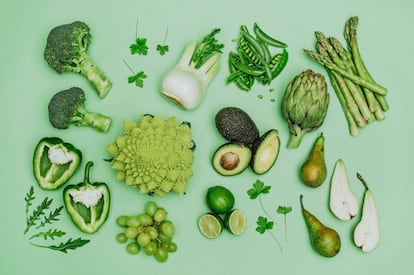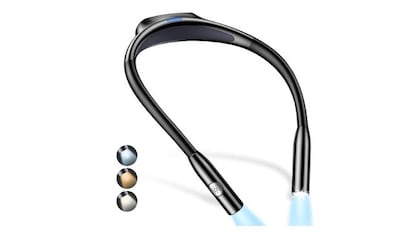Best foods to boost red blood cells
One of the best natural ways to combat a deficiency is to consume more nutrient-rich foods
The most abundant cells in human blood are red blood cells. These cells contain hemoglobin, which is an iron-rich protein giving blood its distinctive red color and responsible for carrying oxygen in the blood throughout our body. Red blood cells also help dispose of carbon dioxide from the body. These cells have a lifespan of about three months, but they get replaced since our bone marrow is continually making more.

What is a normal red blood cell count?
A normal red blood cell count can vary from around 4.7 to 6.1 million cells per microliter for men and 4.2 to 5.4 million cells per microliter for women. For children, the normal count is 4.0 to 5.5 million cells per microliter. These ranges can vary from person to person, and may also change depending on the lab that administers the tests.
A low red blood cell count results in anemia, which causes symptoms such as fatigue, weakness, dizziness, shortness of breath, and heart palpitations
A low red blood cell count can be caused by several reasons, including bleeding and hemorrhaging, malnutrition, bone marrow failure, and over-hydration. This can result in anemia, which causes symptoms such as fatigue, weakness, dizziness, shortness of breath, and heart palpitations. Anemia is when your body produces too few red blood cells or each cell contains too little hemoglobin. The most common type of anemia is iron-deficiency anemia. If left untreated, it could possibly lead to serious complications.
Foods that increase red blood cell count
When our red blood cell count slips, one of the best natural ways to correct this is to consume more nutrient-rich foods to give our body the tools it needs to make more of them. You could take a vitamin-mineral supplement but our body absorbs nutrients best when they come from eating food.
Here is a list of nutrients, and the foods they are found in, that will boost your red blood cell count the best:
Iron
The most common nutrient associated with preventing anemia is iron. This red blood cell booster is used to make hemoglobin that stores oxygen in the blood cells. Without iron, these cells can die or be unable to deliver oxygen to the body. Men require 8 milligrams of the nutrient daily, while women need 18 milligrams – after menopause, women only require 8 milligrams. Below are the best sources of this mineral:
- Red meat, poultry, fish
- Spinach
- Beans
- Fortified cereals
- Prune juice
- Lentils
Vitamin B-12
This vitamin, which is only found in foods of animal origin, is vital for proper brain functioning and for creating new red blood cells. If you are deficient in vitamin B-12, this can prevent red blood cells from maturing. A deficiency of this vitamin has its own specific type of anemia called megaloblastic anemia which can lead to abnormal red blood cells called megaloblasts. Daily, both men and women require 2.4 micrograms. Foods sources of B-12 include:
A vitamin B-12 deficiency can cause megaloblastic anemia
- Red meat, fish, poultry
- Milk and cheese
- Eggs
- Fortified breakfast cereals
- Fortified soy and nut milks
- Fortified nutritional yeast
Folate or folic acid
This is another important type of B vitamin in creating red blood cells. The difference between folate and folic acid is that folate occurs naturally in food while folic acid is the synthetic form of this vitamin. This vitamin also is essential for the nervous system and for breaking down and converting the food we eat into energy. Men and women require 400 milligrams of folate or folic acid daily. Below are rich sources of this vitamin.
- Spinach
- Lentils
- Garbanzo beans
- Asparagus
- Enriched breads and cereals
- Avocados
- Oranges and orange juice
- Beef liver
- Black-eyed peas
- Brussels sprouts
- Broccoli
- Mustard greens
Vitamin C
This water soluble vitamin does not have a direct role in affecting red blood cells. However, it earns a spot on this list because it helps the body better absorb iron. The more iron absorbed, thanks to sufficient intake of vitamin C, the more red blood cells that the body can create. Men require 90 milligrams daily while women require 75 milligrams. Vitamin C is found in a variety of foods including:
The more iron absorbed, thanks to sufficient intake of vitamin C, the more red blood cells that the body can create
- Citrus fruits – oranges, grapefruit, lemons, and limes
- Kiwi fruit
- Strawberries
- Red and green bell peppers
- Cantaloupe
- Papayas
- Mangoes
- Pineapple
- Watermelon
- Kale
- Broccoli
- Cauliflower
- Brussels sprouts
Copper
This essential mineral helps the body to absorb iron. If you were deficient in copper, it would be difficult for the body to absorb the necessary iron to help make red blood cells. Men and women need 900 micrograms of copper daily. Best food sources include:
- Cashews
- Sesame seeds
- Avocados
- Sunflower seeds
- Beef liver
- Lentils
- Spinach
- Beans and peas
Dr. Samadi is a board-certified urologic oncologist trained in open and traditional and laparoscopic surgery and is an expert in robotic prostate surgery. He is chairman of urology, chief of robotic surgery at Lenox Hill Hospital. He is a medical contributor for the Fox News Channel's Medical A-Team. Follow Dr. Samadi on Twitter, Instagram, Pinterest, SamadiMD.com, davidsamadiwiki, davidsamadibio and Facebook.
Tu suscripción se está usando en otro dispositivo
¿Quieres añadir otro usuario a tu suscripción?
Si continúas leyendo en este dispositivo, no se podrá leer en el otro.
FlechaTu suscripción se está usando en otro dispositivo y solo puedes acceder a EL PAÍS desde un dispositivo a la vez.
Si quieres compartir tu cuenta, cambia tu suscripción a la modalidad Premium, así podrás añadir otro usuario. Cada uno accederá con su propia cuenta de email, lo que os permitirá personalizar vuestra experiencia en EL PAÍS.
¿Tienes una suscripción de empresa? Accede aquí para contratar más cuentas.
En el caso de no saber quién está usando tu cuenta, te recomendamos cambiar tu contraseña aquí.
Si decides continuar compartiendo tu cuenta, este mensaje se mostrará en tu dispositivo y en el de la otra persona que está usando tu cuenta de forma indefinida, afectando a tu experiencia de lectura. Puedes consultar aquí los términos y condiciones de la suscripción digital.




























































